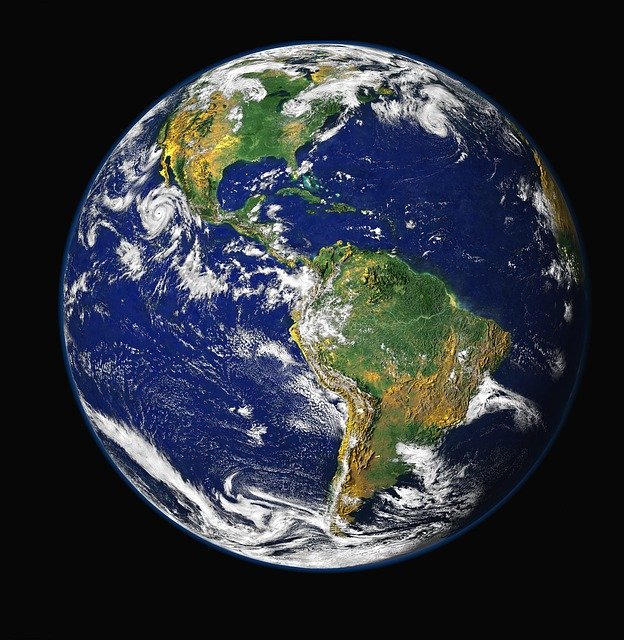
by Maureen Cooper | Dec 10, 2018 | Compassion, Kindness, Relationships
Using the news to connect with compassion
Recently, I got the chance to hear Karen Armstrongspeak at a symposium on diversity at the Vu University in Amsterdam. I do some work for the Charter for Compassion, which she founded, and I was interested to hear what she had to say.
She spoke about how polarised our world has become and stressed that each of us needed to find a way to do something to change that. She was asked how someone could contribute to this change on a personal level. Armstrong pointed out that when we watch the news, we come across things that upset and worry us. Her suggestion was that we look into that feeling of discomfort and use it to generate compassion. I do that myself sometimes, and it certainly does work.
However, more and more people that I speak with tell me that they have stopped watching the news because it distresses them too much. It got me thinking about a less confrontational way of connecting with compassion, rather than conflict.
What gets in the way of connection?
One of the greatest obstacles to connection is to just see another person as an object—not really human at all. We can do this just ouhttps://www.awarenessinaction.org/why-it-is-important-to-know-how-interconnected-people-are/t of habit, or just not paying attention. The check-out person in our local supermarket, a serving person in a restaurant, or the person driving the tram can all be people we just see as agents to provide what we need at that moment.
It can go much further though. During World War II, U.S. Army Brigadier General S.L.A. Marshall asked infantry soldiers how often they fired their guns in combat. The results were surprising and uplifting—only 15-20% of soldiers actually fired at the enemy.The reluctance to kill is hard-wired into our psyche. Unfortunately, this research led to the U.S. Army working on ways to dehumanise the enemy, so that soldiers felt less connection to the other side as human beings. It worked—by the Vietnam War, 95% of soldiers were firing their weapons but this came at a great cost. Between 18 and 54% of the 2.8 million military personnel who served in Vietnam suffer from post-traumatic stress disorder—far higher than in previous wars.
Creating a habit of connection
I mentioned already that not paying attention can mean that we don’t notice people as people. This is a habit that we can change if we take it on. One of the ways I am experimenting with since Karen Armstrong’s talk is to use my morning routine as a means to reach out to people beyond my immediate circle. As I shower, dress and eat breakfast I try to think of all the people involved in making the things I use available to me. In addition, I try to think of using natural resources well, whether workers are treated fairly, and the carbon footprint of what I am using.
Getting ready for the day
Showering
The toiletries we use—shower gel, shampoo, body lotion and make up—are sourced from all over the world.Micais used extensively, especially in make-up, and comes largely from India. However, child labour is often used in the mining of mica, with children not attending to school and working in unsafe conditions for tiny sums of money. There is work going on to try to put this right, but it goes slowly. I try as best as I can to use toiletries that are manufactured ethically but it is not always easy to tell. As I use my shower gel and so on, I try to consider all the people involved in making it—from the people who source the raw materials, to the people who market and well it. It must come to hundreds of people for each product.
Getting dressed
A lot of our high street clothing comes from countries such as Bangladesh, India, China, Vietnam, Ethiopia and Indonesia. Certainly, these will all be people living very different lives from my own here in Amsterdam. In some cases, such as garment workers in Bangladesh, they will be struggling with unfair—or even unsafe—working conditions. Many of the workers will be women with homes to look after and children to feed. I don’t want to wear clothing that has been made by workers who are treated badly but, again, it is not easy to tell. A few years back, Primark was targeted for its role in using cheap labour in Bangladesh. Since then it has set up CottonConnect,training camps for women in India to learn more efficient ways of farming cotton. Although it has improved conditions for many cotton farmers, it is still part of the cycle that keeps cotton prices very low.
Eating breakfast
For breakfast I usually have porridge, with spelt-bread toast and Redbush tea. The oats for my porridge come from Scotland, and the cranberries I sprinkle over it are from the USA. Spelt is harvested in Germany and Belgium. Redbush tea comes from South Africa.
All these people help me to start my day
So, by showering, dressing and eating breakfast I am connecting with hundreds of people in Asia, Africa, and Europe. Mostly I direct my attention to the people who source and make the items that I use. I try to see them at their work and going about their lives. It’s unlikely that we will ever meet but we are connected through my using the product of their work.
We could go much further—the people working on packaging, transport, marketing and selling. Then there are all their families who depend on their work and the friends they hang out with.
Sometimes people say to me, ‘Well, it’s their job!’ That is true but who says I can’t feel gratitude and appreciation for the care and hard work of others? Most importantly, it helps me to remember that I live in an inter-connected world, relying on the effort and kindness of many people through each step of my day. We might lead different lives, but we are the same in that we want to be happy, to take care of our families and make our way in the world in peace.
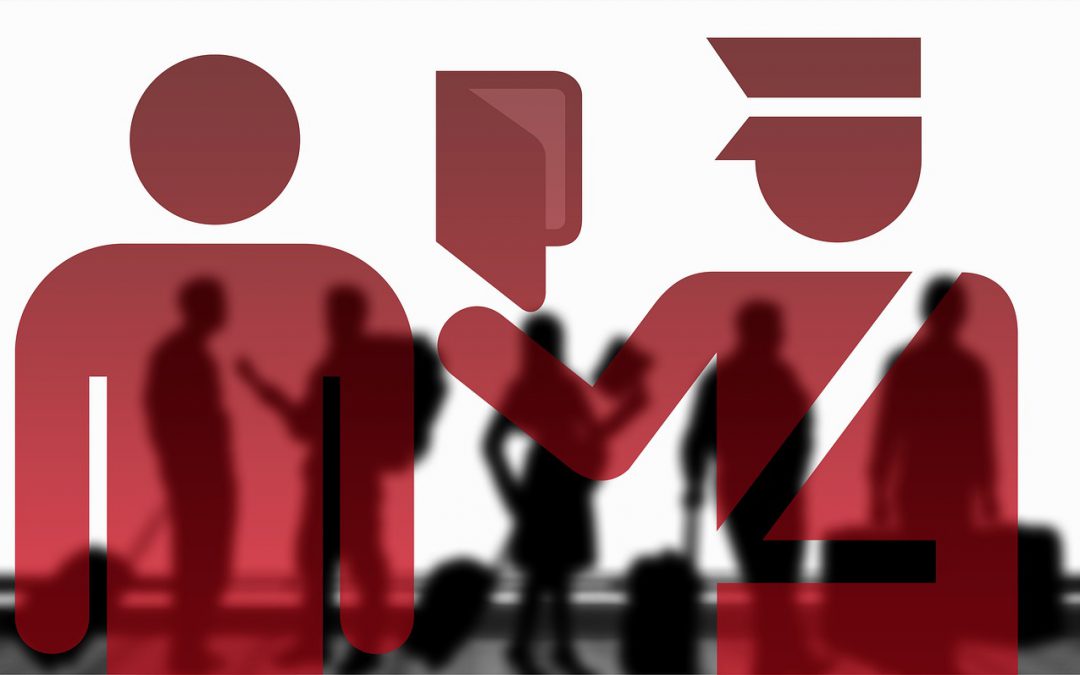
by Maureen Cooper | Nov 19, 2018 | Compassion, Relationships, Stress
It’s a pretty straightforward situation—your passport is almost out of date and you need it renewed. Even an old hippy like me, with an aversion to bureaucracy, can get her head around that. The thing is that although a British citizen I have lived in the Netherlands for many years. It used to be possible to renew your passport through the British consulate in Amsterdam but not anymore. Now it is HM Passport Office in the UK and you already know that you are in trouble.
On top of that there were date crunches when I could not be without a passport, but the renewal was unlikely to be ready. I needed some advice in order to work out how to manage it.
-
You need them more than they need you
It did not take long to realise that your passport renewal is only of interest to you, no-one else is interested at all. The system is obviously creaking at the seams. If you get put off in your application, that’s just one less worry for them. There was not a moment when I felt like someone buying a service—indeed the over-riding attitude was that I was being granted a favour.
In fact, worse than that, at some subtle level I was made to feel that somehow, I was trying to buck the system. By needing answers to questions that did not fit neatly into the standard renewal pattern I was asking too much. Needless to say, any small variations that might exist are only there for the use of people living in the UK. If you’ve been reckless enough to leave, it’s obvious that you cannot expect to maintain the same rights as those who don’t.
Uneasily I recalled everything that I had read about the Windrush Generationand the heart-breaking stories of would-be asylum seekers holed up in the Jungle campnear Calais. If I felt treated in an unfriendly way how would be it be to be someone hoping to be given refuge in the UK?
-
You never get to talk to a real person
The thing is, you never get to talk to a living person. HM Passport Office was not interested in my particular situation, or specific needs. All I could do was to study the website over and over again looking for answers—at least it was better than the endless chain of voice messages and prompts when I tried to phone.
According to a study by Google, 61% of mobile users call a business when they’re in the purchase phase of the buying cycle. The majority of respondents would call instead of reaching out online because they’re looking to get a quick answer (59%) or talk to a real person (57%). Most serious of all—constant communication without direct human contact undermines empathy.
-
The whole process is slow and expensive
In the end I applied for my renewal online. It cost £105.86 including postage. The actual online process is simple and relatively easy to follow. There is just this uncomfortable feeling that if you get something wrong you will be forever doomed to chase around in lonely circles trying to fix it. It’s slow though. Once your renewal request is ‘approved’ it takes at least 6 weeks for the passport to be sent. It was longer for me because the summer was beginning.
Inevitably, I needed to purchase an Emergency Travel Document in order to travel during the time my passport was with HM Passport Office. There is no service by which you are issued with an official document that states that your passport is being renewed. Even though I was only travelling from Amsterdam to the south of France by car—so no need for identification at airports and so on—I still needed to pay an additional £114.00 for my Emergency Travel document.
-
There is zero flexibility
It was possible to purchase the Emergency Travel document in Amsterdam though. I filled in an application online and made an appointment to deliver documents. It was getting pretty close to my departure date and time was running out.
You can’t just enter the Consulate building. You ring at one door and then have to go around the back and enter through another—communicating through intercom as you go. Once inside you have to surrender your mobile phone and put it into a safe. Eventually you arrive at a small, stark waiting room where behind a glass and grill protective wall, one or two people appear to be working. By that stage I was so grateful to meet an actual human that I did not mind the wait. What I did mind was being told that after all, I would need to come back tomorrow in order to collect my ETD.
I am sad to say that I got very cross. Perhaps it was because I had felt so disrespected throughout the whole process, which had been a frustrating experience in alienation. After a few heated exchanges I managed to negotiate an agreement whereby I could collect my ETD at 15.00 that same afternoon.
When I arrived back at the consulate, I rang the door again and waited. A security guard appeared at the door and asked me to wait—outside. After some moments, he reappeared with my document, a receipt and a form for me to sign. He same down the steps into the street to give me the document and for me to sign. When I asked why we were doing this in the street, he said that officially the consulate was closed. It felt as if we were doing an illicit deal.
He asked me to return the ETD when I had finished with it because it was UK property. I have not returned it.
-
Premonitions of post-Brexit Britain
Perhaps it is fanciful, but all this seemed to be exacerbated by Brexit. I have never wanted to leave the EU and my resolution has only deepened as I watch with horror the incalculable mess that is being made of the UK withdrawal. For me, pretentiousness, arrogance and lack of concern for human beings and their ordinary lives are all hallmarks of the UK government’s approach to hauling the UK out of the EU. All of these were evident as I went through this every day, ordinary process. Form, appearance, adherence to some supposed standards of practice were all that mattered. My personal situation, my questions, my concerns were completely without merit in the process.
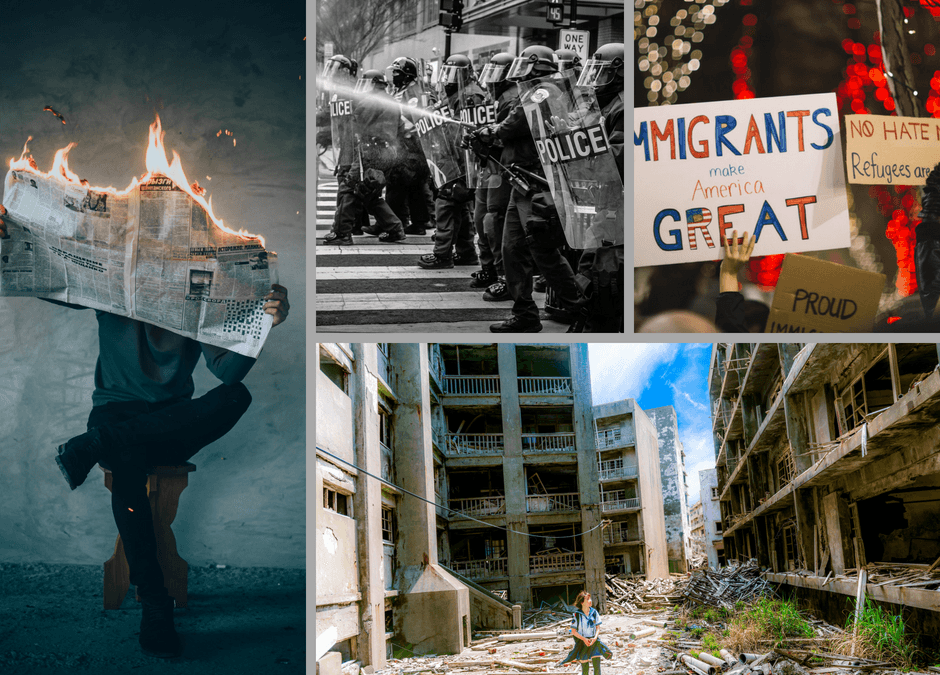
by Maureen Cooper | Oct 17, 2018 | Kindness, Meditation, Relationships, Self-compassion, Stress, Yourself
As the Beatles sang in their song, A Day in the Life,
I read the news today, oh boy….
As I read the news, the main headline was about the ‘final call’ to save the world from ‘climate catastrophe’—in other words, everyone and everything frying in less than 30 years time. There was a piece about girls in school uniform being sexually harassed, and another about increasing homelessness even in prosperous cities in the USA. Another right-wing candidate has leapt to prominence, and the incidents of PTSD among veterans is seriously on the rise. Young people who have enough money for a 10% deposit on a house still cannot afford to buy one. Then the usual stories of bribery, corruption, and the misery of long-term refugees is like a familiar backdrop to the daily round of suffering, violence and natural disasters.
Quite a lot of my friends have stopped watching the news. They say it is way too distressing, and makes them feel powerless, frightened and miserable. Why put yourself through it—it’s enough to make you crazy?
So why do I risk the news driving me crazy and keep watching it so regularly?
Common humanity
Something that comes into my head over and over again as I struggle with watching the news is that any one of the people I am watching could be me—I could be flooded out of my home or attacked by a terrorist while moving about the city. I am one of the people directly affected by Brexit, new tax regulations and the housing shortage. It seems vitally important to realize that each of the news stories are made up by people just like me. We might live in different countries, have different interests and concerns but each of us needs basic shelter, enough to eat and a way to earn our living. We all have hopes and dreams and we all experience crushing disappointments, anxieties and fears. Somewhere, at some level we all want and need love.
Putting myself in their shoes
As I watch the news I try to put myself in the shoes of the people involved – to see things as they are experiencing them. This is not the same as letting myself get overwhelmed by what is going on. It’s more like walking a bit on someone else’s shoes until I get their feel and then putting my own back on. I know it will not help anyone if I just feel bad and miserable. The point for me is not to withdraw but to see it all within the scope of how inter-connected we all are – to keep my own heart open and responsive, to dare to be vulnerable.
It gets a lot harder if I try to put myself in the shoes of the perpetrators of terrorism, or conflict, or crime and sometimes it is just not possible. At the very least, I make an attempt to fathom what led them to act as they did—to ask myself what suffering they may have experienced that led to such drastic action.
Dealing with judgement
We seem to be living through a time of deep polarization between different opinions and ways of seeing the world. It is all too easy to judge those we disagree with as being less capable, less honest, almost less human. It hurts to see legislation, political appointments and decisions that go directly against what you yourself feel to be important. At such times it’s easy to feel cynical and dismiss it all as just another manifestation of how hopeless it all is and how we should not even try to make sense of any of it.
I was struck by a recent video I watched from Michelle Obama in which she encourages people to get out and vote—to take responsibility for how they want to live. She did not urge people to vote democrat—she simply encouraged people not to go passive in the current melée of politics but to engage and choose. Her insistence that it is fundamentally up to us resonated with me.
Managing my dislike
I confess to feeling angry, frustrated and overwhelmingly sad when certain politicians come on the screen—I just need to hear their voice, or see their name and my reaction rolls in. It surprises me how visceral it is. Generally my preference is for dialogue, kindness and compassion and yet when these particular political figures appear on the screen I just want to yell abuse.
This cannot be called a productive response at any level.
Perhaps one of the main reasons for this reaction is my sense of helplessness—I want to hit back because of how frustrated I feel. Just lately, it has been becoming clearer that if I can manage my exactions with more equanimity, less dislike and less judgement I can feel that I am taking back some control of the situation. A meditation teacher of mine used to say, If you want to bring about nuclear disarmament, start off with the atom bomb in your own heart. The wisdom of this is finally beginning to filter through.
Just as Michelle Obama encourages participation as a way of taking responsibility, so working with my reactions—from aversion, through judgement to dislike—can help me to have more resources and energy to see the new items more clearly. This can only help in developing the understanding and compassion I am looking for.
Bearing witness
Watching the news has become a way of bearing witness for me—bearing witness to the pain and suffering in the world, to the struggles that we all have to manifest our natural capacity for kindness and to my own path to developing my resources in order to be of benefit, rather than adding to the chaos and confusion.
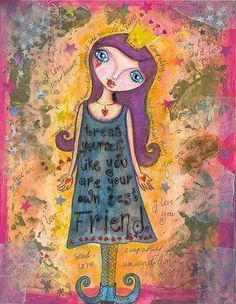
Hello! If you enjoyed this blog and want to go deeper, you might enjoy this online course: How to Be a Good Friend to Yourself
https://www.awarenessinaction.org/be-a-good-friend-to-yourself-emg/
Photo credits
Photo by Elijah O’Donell on Unsplash
Photo by Randy Colas on Unsplash
Photo by Nitish Meena on Unsplash
Photo by Spenser on Unsplash
Photo by Jordy Meow on Unsplash
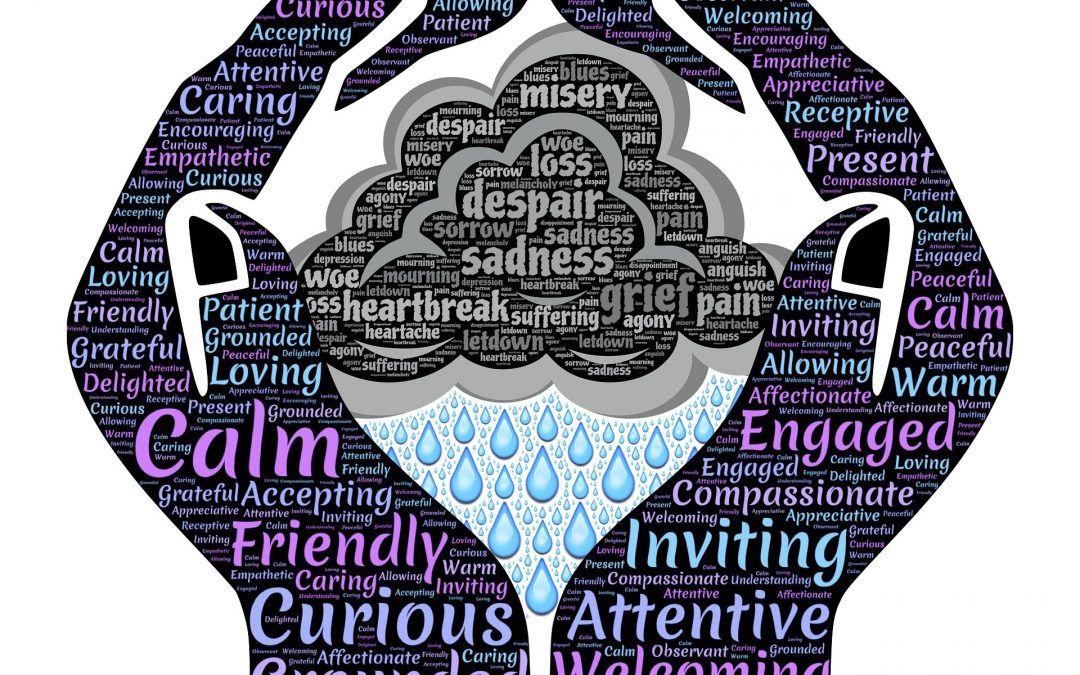
by Maureen Cooper | Aug 9, 2018 | Self-compassion, Yourself
A few weeks ago, I was visiting some friends of mine and there was a bit of a crisis. Their 27-year-old son, who has temporarily moved back in with them, had decided to run a half-marathon in another city the day after a family event that had been scheduled for more than a year. He was still planning to attend the event but would need to leave early. Everyone knew that this was going to cause a major upset.
Later on, I talked with him about it. He explained that he had reached a time in his life when he had to begin to prioritise his own needs. He felt that for most of his life he had focused on wanting to please other people and now it was time see how he himself wanted to live. It was important to him to get back into running and this half-marathon was the best way to do that.
In many ways I felt a great deal of sympathy for him. Deciding to take one’s self-care seriously is an important milestone in one’s life. It marks another stage in growing up. However, there were aspects of his dogged determination to follow his own instincts and to turn aside from the feelings of those close to him that felt slightly evangelical to me. He was on a bit of a crusade of self-care and to stop and think of the impact of his actions on others was like going back on his new goal. It got me thinking about how subtle self-care can be and how easy it is to over-simplify it. I decided to explore it some more.
What is self-care?
In 2005 the UK Department of Health published a broad definition of self-care:
Self-care is a part of daily living. It is the care taken by individuals towards their own health and wellbeing, and includes the care extended to their children, family, friends and others in neighbourhoods and local communities.
This definition points out that self-care is a means of working with stressors in daily life, rather than a method of avoiding problems with momentary distractions and indulgences. It seems to imply that extending care to one’s children, family, friends and neighbours fits into the overall definition of self-care. This makes sense from a wholistic point of view as it is hard to see how you could be truly caring for yourself, if you neglect all the people connected to you in your life.
There is now an international self-care daywhich falls on 24 July and is run by the International Self-Care Foundation. They stipulate Seven Pillars of Self-Care.

What strikes me most about these Seven Pillars is that they focus on the physical aspects of self-care, with an enormous topic like mental wellbeing and self-awareness being crammed into just one pillar.
For self-care to be effective, we need to come at it in as broad a way as we can. Taking good care of our physical health is important but the way we manage stress, and work with the challenges of life are deeply intertwined with how our bodies cope. We can be exercising regularly and eating healthily but pushing ourselves too hard at work. We might give up smoking and cut down on our alcohol intake but be struggling with a relationship breakdown.
Elements of self-care
In her a recent article, health coach Tara Sareen divides self-care into two categories: recreational self-care and transformative self-care.
RECREATIONAL SELF-CARE
This is the kind of self-care that offers a break in what you are dealing with—a special night out, a weekend away, a good massage. It’s refreshing and gives us a boost. For the most part it is easy to set up, and it’s highly enjoyable.
TRANSFORMATIVE SELF-CARE
This kind of self-care might not necessarily be fun—it might even be quite demanding. It could involve finding time to learn something new, like meditation. We may decide to embark on a session of counselling. The important thing is that it takes our needs seriously and is a way of investing in sustainable wellbeing and personal growth. The effort is greater, but the rewards are more lasting.
If we want to go a little deeper, we can look to the four dimensions of human existence as laid out in Existential Wellbeing counselling. These are:
-
The physical dimension
This involves everything that has to do with the tangible, sensory body and the natural and material environment. Important values in this dimension are safety, comfort, pleasure, and health.
-
The social dimension
Here the focus is on your relationship with other people and everything that concerns your position in society. Important values are status, recognition and success but also includes caring for others, friendship and belonging.
-
The psychological or personal dimension
In this dimension, psychological characteristics are involved, personality traits, intellectual ability and opinions you hold about yourself. Here self-knowledge, autonomy and freedom are of great importance. Investing in this dimension can lead to a rich inner life. It involves a self-acceptance, coming to terms with yourself and processing and accepting your past and present life.
-
The spiritual dimension
This includes self-transcending ideals, a broader system of meaning, spiritual values, the confidence that there is a meaningful direction that develops in life. There is more emphasis on oneself as part of the whole. It is experienced less as a fourth dimension than as a deepening and foundation for the other three.
Personally, I find reflecting on these four dimensions to be very helpful in assessing where my ability to care for myself is quite robust and where it is weaker. The idea is that we find some sort of balance between these four dimensions and I can see clearly where some of my own imbalances lie. These dimensions take self-care to a different level and enable us to take a more integrated look at how and where we need to practice it.
Why is it an issue?
When you scan the internet, and various self-help publications and website it does not take long to see that self-care is a hot topic. It seems that we are not very good at it and many intelligent, resourceful and seemingly efficient adults are failing to give themselves the care that they need in order to avoid burn-out, compassion fatigue, and high stress. Let’s take a brief look at some of the reasons why that is.
-
We drive ourselves too hard
Many of us are juggling demanding jobs, tight budgets, the needs of our family and our own expectations of ourselves. Each day is a list of things to get done and we struggle to keep up. Perhaps we do aspire to take better care of ourselves but then we have a work deadline and need to stay late to accomplish it. There’s been no time to eat properly during the day and we have drunk too much coffee. We get home late and feel guilty that we have had so little time with the kids. Before we go to bed we need to take time to make sure everything is in place for the next day. We fall into bed late and wound up and can’t fall asleep.
-
Most of us have an active and harsh inner critic
Do you have a voice in your head that gives a running commentary on how you are going about things? Does it remind you of a teacher, or parent, or a former boss? Many of have such voice that speaks to us in a way we would never speak to another person and get we subject ourselves to its tyranny on a daily basis. We think the voice is helping to keep us in line, but it is stifling our creativity and sense of adventure.
-
Our pursuit of perfection is a no-win situation
In her book, The Gifts of Imperfection, Brené Brownsays,
Perfectionism is self-destructive simply because there is no such thing as perfect. Perfection is an unattainable goal.
Moreover, we tend to seek perfection so that people will approve of us and want to be with us. We use it a means of ensuring that we are loved and loveable, when we have no chance of attaining it and even less of maintaining it.
Befriending ourselves
Once we grow up and leave home, self-care becomes our own responsibility and not part of how we are parented. At the same time, it becomes subject to all the forces of our own worries and hang ups—sometimes making it very hard to care for ourselves as we need to. Yet we can see, that part of growing up and maturing—at whatever age—is to learn to be a good friend to ourselvesand to self-care as an essential part of the way we live. We owe to ourselves, to the people around us and the world at large.
A sure way to get self-care right – understand its scope
It can be hard work
It seems that in spite of all the hype, self-care is a basic human need for each one of us. Every time we get confused and go for the ‘treat’ response to our worries and stress, we are actually cheating ourselves of that self-care. Of course, it is fun to treat ourselves from time to time but when it becomes a coping strategy then we are in trouble. Sometimes caring for ourselves is hard work but that’s OK if it helps us transform and grow.
To care for ourselves we need to include other people
Likewise, if we think self-care is all about focusing on ourselves we are missing out on the vast dimension of our social world and inter-related acts of kindness. Self-focus as a means of caring for ourselves withdraws us from a powerful source of nurture, and healing which we can find in understanding the interconnected experience and understanding of human beings. Recognising that everyone struggles some of the time helps us to see our challenges in perspective.
We might need to try something new
It seems we need a certain courage, and a clear sense of balance to be able to coax ourselves into a pattern of productive self-care. It is good to see that so many of the experts recommend meditationas a basis for learning to befriend ourselves as we are and continue to strive for all facets of wellbeing. Meditation helps us to learn to be more present to our experience. We become less in thrall to mulling over things that have already happened or worrying about things that may never happen.
I hope that running his half-marathon brings my young friend the boost he needs but my biggest wish for him would be that he takes the time to reflect on all aspects of self-care. Perhaps his self-focus is a starting point and he’ll get into seeing the bigger picture as he goes along.

Hello there: If you enjoyed this post and want to go further you might like this online course How to Be a Good Friend to Yourself – you can sign up here
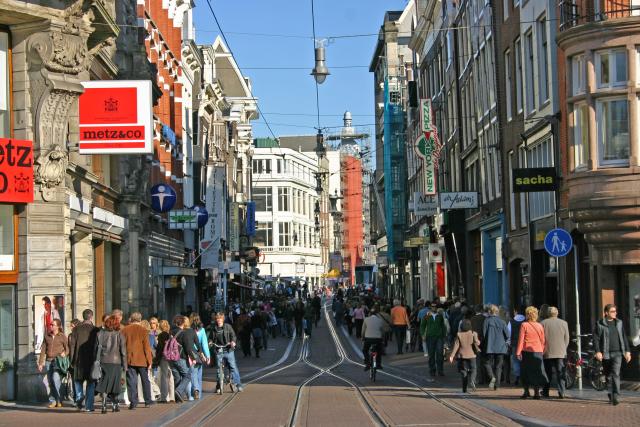
by Maureen Cooper | Jul 16, 2018 | City Living, Meditation, Self-compassion, Yourself
This is the story of how I recently overcame my feelings of wanting to lie low and nurse my stress by going into town and joining with the common humanity I found there.
The last few months have been pretty stressful one way and another and I have been feeling the effects. I work from home, which is great, but when things are intense I can end up feeling a bit isolated. A couple of weekends back my partner was away giving a workshop and I had not made any plans myself. Because I was not feeling sociable, I thought I could work through the weekend.
Unexpectedly, Saturday morning dawned fresh and bright and tempted me to go out and play.
Getting out of my comfort zone
Although I could feel the pull to get out of the house I resisted for a while—I had too much to do, I didn’t want to spend loads of money, I was a bit tired…………. After a while I realised, with a bit of a shock that what was getting in the way was my reluctance to leave my comfort zone. It was easier to stay at home, feeling a bit sorry for myself, than make the effort to go out. This insight gave me a real jolt. I don’t see myself as someone who plays safe. I made up my mind to get ready and go out.
Common humanity and self-compassion
Kristen Neffis one of the leading voices in the research and practice of self-compassion. She sees self-compassion as being composed of three elements:self-kindness, common humanity and mindfulness. Each of these components is an antidote to ways we can undermine ourselves when we do not practice self-compassion. So self-kindness is an antidote to judging ourselves and mindfulness is an antidote to over-identification, or the ways we exaggerate what is happening around us. Common humanity is the antidote to self-isolation. I certainly felt that when I realised part of me preferred to stay home and wallow!
The healing potential of connecting with common humanity was something I experienced directly that Saturday, as I went tired and bruised into town and came home feeling re-charged and uplifted.
Connecting with others is healing
Amsterdam was packed that day. I had forgotten for a moment the huge impact of tourists in the city. There are always lots of people visiting Amsterdam but, in the summer, it gets astronomical. In a city of less than one million inhabitants, 18,000,000 visitors are expected this year. Sometimes I can find this invasive but somehow this time it touched me.
So many people were out and about wanting to enjoy themselves and have a good time. You could hear a whole range of languages and accents as people tried to find their way around the city. There were families and young couples. Older people in tourist parties followed closely behind their guide. There was a tangible sense of movement and enquiry.
To my shame, my Dutch is very poor. Although I have lived in Amsterdam for many years I have not managed to become fluent in Dutch. When I am on my own I always want to let people know that I am not a tourist, just a poor Dutch speaker. On this Saturday I had interactions with all kinds of people in shops, and my confession led to a whole series of interesting stories with the people working in the shops I visited. There was lots of sharing of experiences and much laughter and teasing.
Because I was on my own, people were more likely to take time to talk with me. I could feel something in me relax with the enjoyment of chatting without any particular kind of agenda. In the café where I stopped for coffee there was time to look round and see the other people enjoying their coffee and cake.
One of my favourite meditations for common humanity
The more I walked around and felt myself as one of the crowd, the more I could feel the tightness of recent months begin to dissolve. With my own stress and worry still so close, it was a small step to look at others and wonder how they were and what they were coping with.
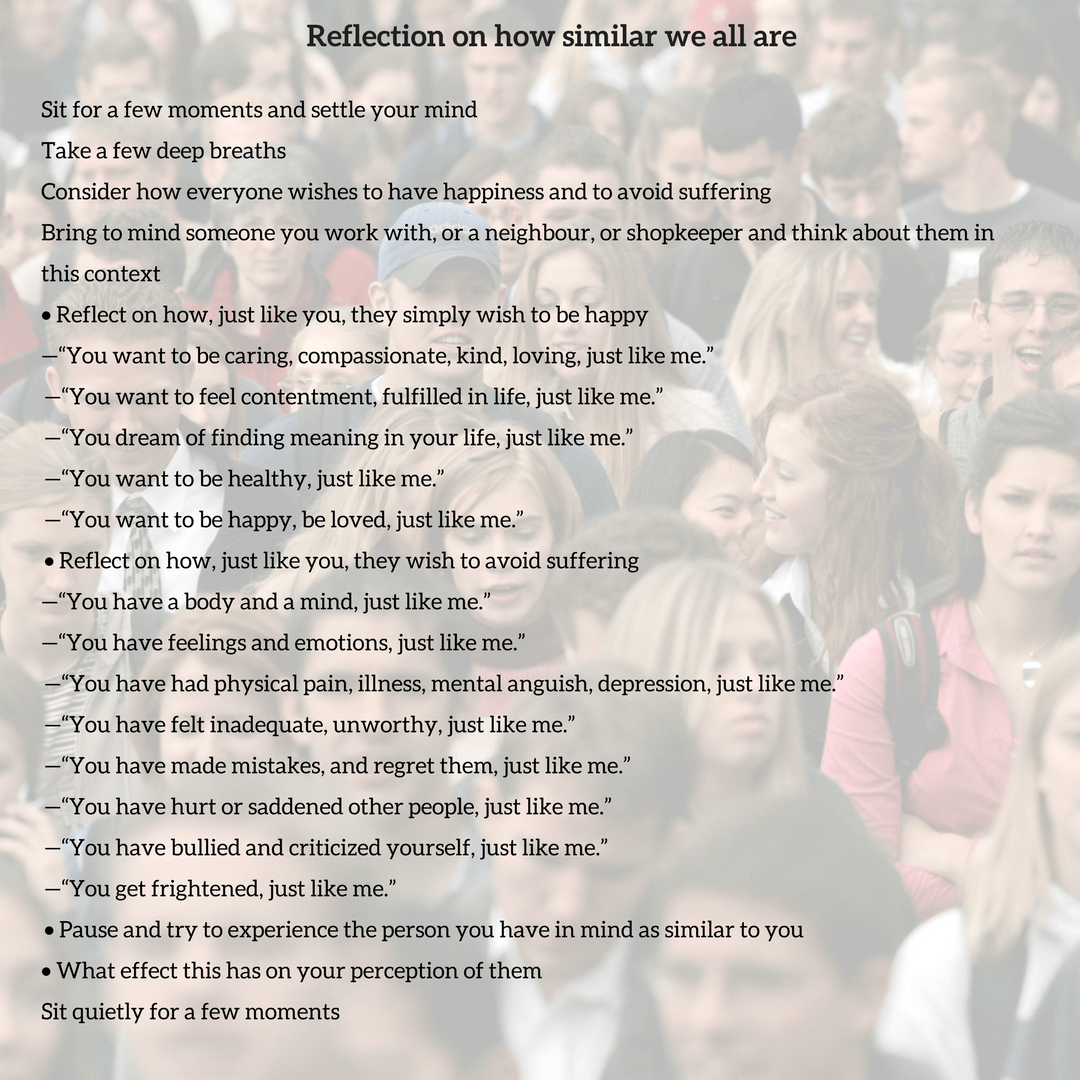
This is adapted from a practice in Search Inside Yourself: the unexpected path to achieving success and peace by Chade-Meng Tan.
I found myself reciting, or paraphrasing lines from this meditation more and more as the afternoon went by. Would anyone know from looking at me what I had been carrying over the last months? Probably not. How can any of us gauge what someone is dealing with, other than by accepting the basic truth that life is both wonderful and very hard at the same time. We all want things to go well but life shows us that some of the time they won’t. Everyone has their own worry, suffering and pain—everyone. So it is possible to look into the eyes of anyone you pass by and think, ‘just like me.’This is the experience of common humanity for me.
Remembering gratitude
As my walk around town continued I experienced a growing sense of gratitude. It felt so good to be part of the energy of the people enjoying the city, as well as feeling a sense of connection between myself and them.
My worries were still there but I felt much less alone with them. Remembering that everyone I was meeting would be going through their own version of challenge and anxiety lifted the heaviness from my own. Before I set off to play in town I was feeling that my problems were all-pervasive. After a few hours of shopping and people-watching I simply felt that we were all in the same boat—wanting happiness but dealing with whatever comes along.
Research into gratitude over the past 15 years is finding several emotional, and lately even physical benefits. Connecting with common humanity, recognising its power to help me and experiencing gratitude because of that transformed my mood and lifted my heart. I will not quickly forget the experience.

Hello there!
If you enjoyed this post and want to go further, you might enjoy this online course:
How to Be a Good Friend to Yourself
You can find out more here









